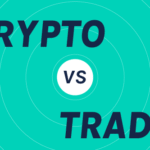The Role of Utility Coins in Blockchain Ecosystems

Introduction: What Are Utility Coins?
Utility coins are a specific type of cryptocurrency that grant users access to a product or service within a blockchain-based platform. Unlike traditional currencies or security tokens, utility coins are not designed for direct investment returns but rather serve as a functional tool within their respective ecosystems. As blockchain technology expands into various industries, utility coins play an increasingly vital role in powering decentralized applications and services.
Core Functionality of Utility Coins
At their core, utility coins enable interaction within blockchain platforms. These interactions can include paying transaction fees, accessing premium features, voting on governance proposals, or even rewarding users for participation. Their primary purpose is to fuel the network’s internal economy and incentivize desired behaviors among users and developers.
Utility Coins vs. Other Crypto Assets
While crypto coins like Bitcoin are primarily used as digital money, and security tokens represent ownership or financial rights, utility coins are designed to support the infrastructure of a specific blockchain project. They do not represent ownership or profit-sharing rights but instead function like a license or a digital coupon that provides access to a service.
Examples of Popular Utility Coins
Several well-known blockchain platforms use utility coins to power their ecosystems:
- Ethereum (ETH): Used to pay gas fees for executing smart contracts on the Ethereum network.
- BNB (Binance Coin): Used on the Binance Exchange for discounted trading fees and other services on Binance Smart Chain.
- Chainlink (LINK): Pays node operators for providing real-world data to smart contracts.
- Filecoin (FIL): Used as payment within a decentralized storage network.
These examples demonstrate how utility coins serve specialized functions rather than just acting as currency.
Enhancing Network Participation and Decentralization
Utility coins often play a significant role in network governance and participation. Holders may use their tokens to vote on changes to the platform or fund new development initiatives. This helps foster decentralized decision-making, allowing communities to shape the direction of their networks democratically. It also strengthens user engagement and ecosystem sustainability.
Incentivizing Use and Development
Many blockchain platforms issue utility coins as rewards to developers, validators, or users who contribute to the network. For example, developers may earn coins for creating new applications, while users might receive tokens for providing liquidity or validating transactions. This incentive structure is crucial for maintaining activity and innovation within the ecosystem.
Challenges and Considerations
Despite their utility, these coins also face challenges. Their value can be highly volatile, and regulatory bodies in some regions may not clearly distinguish them from securities. Additionally, excessive supply or weak demand can reduce their effectiveness within the ecosystem. Careful tokenomics and sustainable demand mechanisms are essential to ensure long-term success.
Future Outlook of Utility Coins
As blockchain platforms mature, utility coins will continue to evolve. With the rise of decentralized finance (DeFi), play-to-earn models, and Web3 applications, these coins are becoming even more integral to user interaction and platform functionality. Innovations in cross-chain compatibility and layer-2 solutions may also expand the utility of these tokens beyond their original networks.
Conclusion: The Engine of Blockchain Ecosystems
Utility coins are much more than digital tokens—they are the operational backbone of blockchain ecosystems. They enable functionality, promote engagement, and help maintain decentralization. Understanding their role is essential for anyone looking to navigate the growing world of blockchain technology and digital assets.









